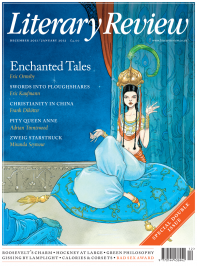Anna Aslanyan
Home Truths
Apricot Jam and Other Stories
By Aleksandr Solzhenitsyn
(Translated by Kenneth Lantz and Stephan Solzhenitsyn)
In his 1974 essay ‘Live Not by Lies’, Solzhenitsyn proclaimed that an honest man ‘will not henceforth write, sign, or print in any way a single phrase which in his opinion distorts the truth’ – a commandment he adhered to until the end.
The stories in Apricot Jam were written in the 1990s, after the writer’s return to Russia, and appear in English for the first time, translated by Kenneth Lantz and Stephan Solzhenitsyn. The exiled Nobel laureate had not touched the form for over twenty years, having been absorbed in his epics, The Gulag Archipelago and The Red Wheel. Many still consider the early novella One Day in the Life of Ivan Denisovich his finest piece of writing. In these short stories, mostly fictional but based on real events, Solzhenitsyn is again concerned with the notion of integrity, both historical and personal.
A famous writer in the title story declares: ‘Invention in literature is sometimes superior to truth.’ While entertaining guests at his lavish dacha, he pontificates on the qualities of the ‘primordial language’ and reveals the sources of his linguistic inspiration: seventeenth-century records of interrogations, where the tortured speak from their ‘very bowels’. A more recent example is a letter from a man who uses such phrases as ‘I didn’t bewray my design’ and ‘there was no cause for evadement’. As the writer melts with pleasure at this style, we remember the ending of the letter, quoted in the first part of the story: ‘Would it cost too much for you to send me a food parcel? Please take pity on me.’ The admirer of the Russian language finds this plea not quaint enough to mention, let alone answer.
The difficulty of living by the truth is a theme that runs through many of these stories. In ‘Times of Crisis’, the legendary Marshal Zhukov reminisces about the battles he fought in the name of Communism. Pondering his memoirs, he wants to write ‘the full, unvarnished truth’. The hero’s recollections of the Second World War are various, from sleeping two hours a day during the battle for Moscow to reviewing the victory parade in Red Square mounted on a white horse, while Stalin gnashes his teeth in envy. He also recalls helping the defeated Germans: ‘We did a lot for them, and our sense of internationalism did not allow us to take revenge.’ This is not the whole story: what is missing is the triumphant march of the Soviet Army back home, when whole areas of East Prussia were looted and countless women were raped.
Some of these stories are divided into two parts, a form Solzhenitsyn discovered in later life. The halves contrast with each other, either giving two opposite views of the same situation or tracing the same character’s behaviour in different circumstances. Both heroines of ‘Nastenka’ grow up in the post-revolutionary period, both study to be teachers, both are presumed to be sexually promiscuous. One, a priest’s granddaughter, is initially terrified of the new order; the other says that ‘Communism, after all, is based on the same ideals as Christianity.’ One is taken by an influential suitor from famished Ukraine to the comforts of Moscow; the other remains at a provincial school, her life growing harsher and harsher. Unable to read her beloved Russian classics – now excluded from the curriculum – to her students, she looks for new names to encourage them, and recites Eduard Bagritsky’s poem: … So that this harsh nation
Would flow with our blood,
So a new generation
Would stand where we stood
– to be instantly rewarded by the children’s enthusiasm.
Up until his death in 2008, Solzhenitsyn was not just a writer but also a passionate commentator who spoke tirelessly of Russia’s fate. While most of his works are inseparable from his political stance, in these mature stories he never expresses his opinion – just observes, usually from different angles, without siding with anyone, providing an unbiased witness account. Instead of proselytising, he lets events speak for themselves, which is often the only way to catch that evasive truth.

Sign Up to our newsletter
Receive free articles, highlights from the archive, news, details of prizes, and much more.@Lit_Review
Follow Literary Review on Twitter
Twitter Feed
Russia’s recent efforts to destabilise the Baltic states have increased enthusiasm for the EU in these places. With Euroscepticism growing in countries like France and Germany, @owenmatth wonders whether Europe’s salvation will come from its periphery.
Owen Matthews - Sea of Troubles
Owen Matthews: Sea of Troubles - Baltic: The Future of Europe by Oliver Moody
literaryreview.co.uk
Many laptop workers will find Vincenzo Latronico’s PERFECTION sends shivers of uncomfortable recognition down their spine. I wrote about why for @Lit_Review
https://literaryreview.co.uk/hashtag-living
An insightful review by @DanielB89913888 of In Covid’s Wake (Macedo & Lee, @PrincetonUPress).
Paraphrasing: left-leaning authors critique the Covid response using right-wing arguments. A fascinating read.
via @Lit_Review